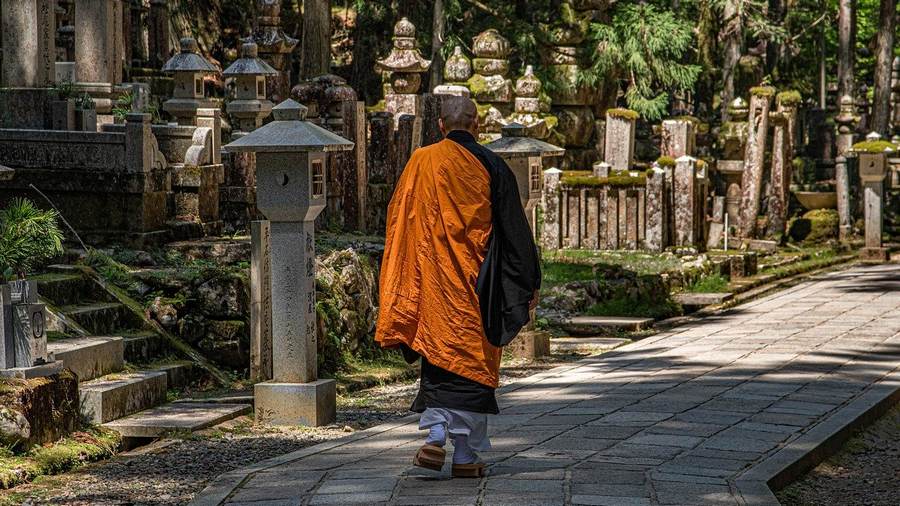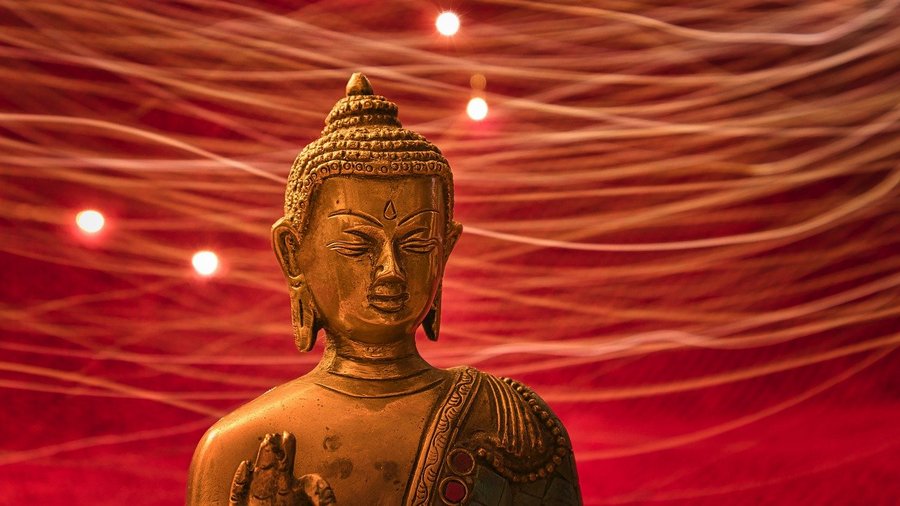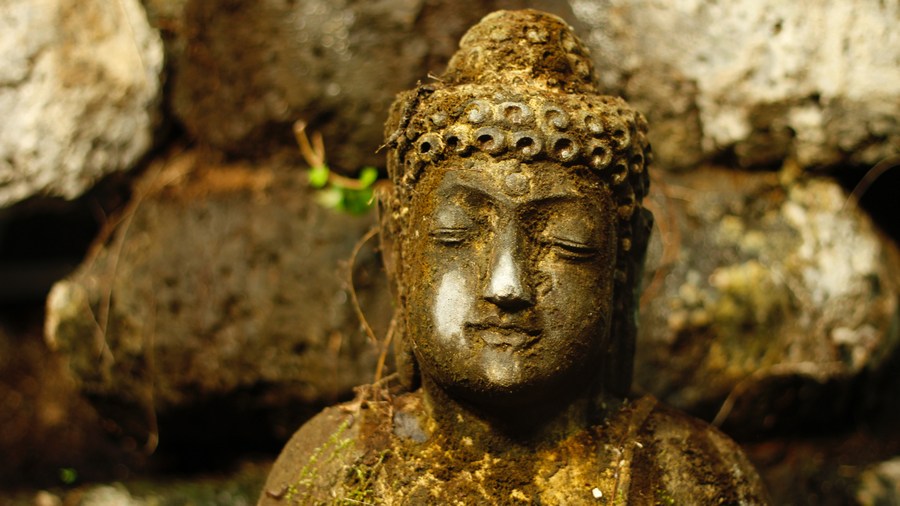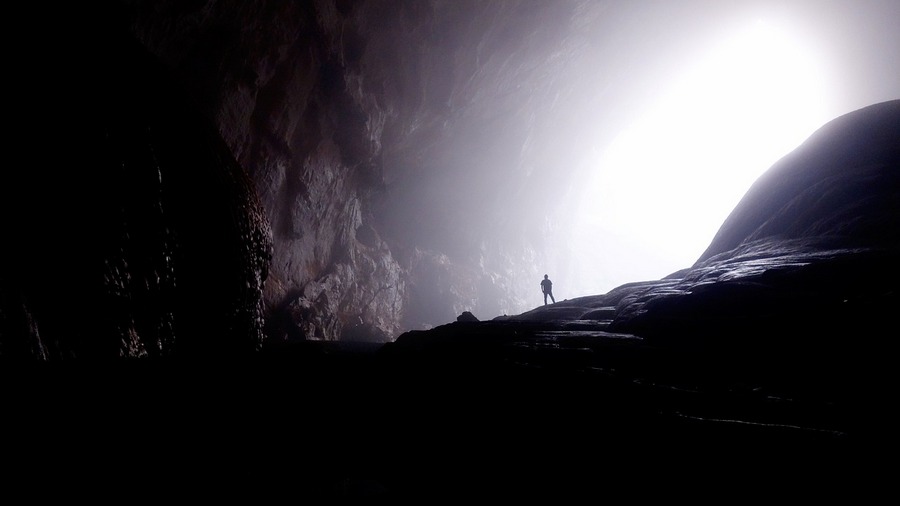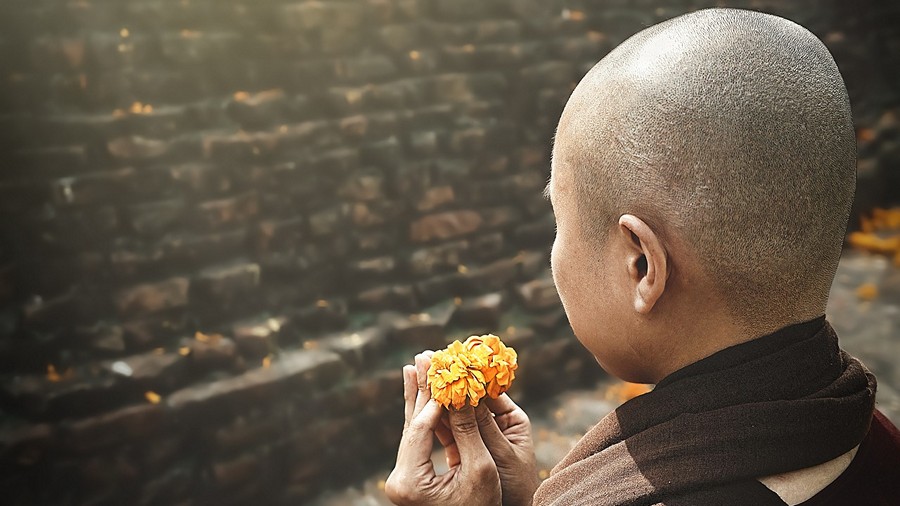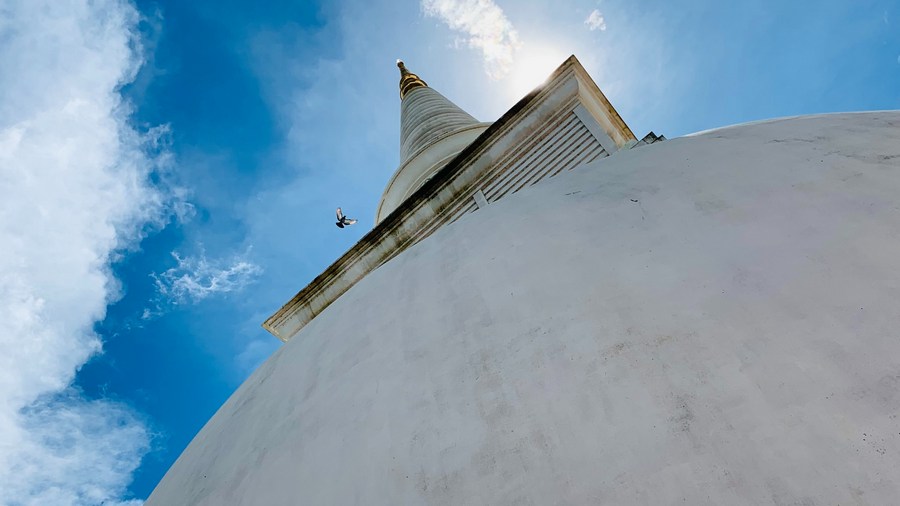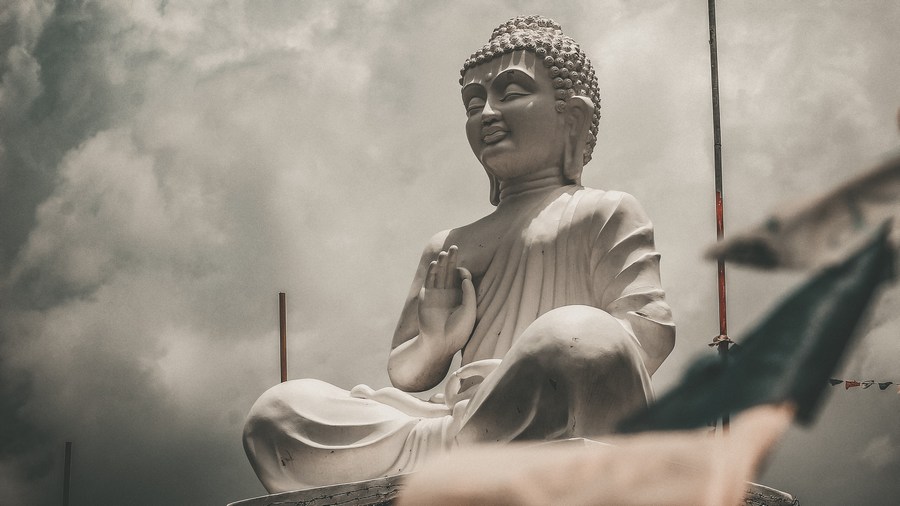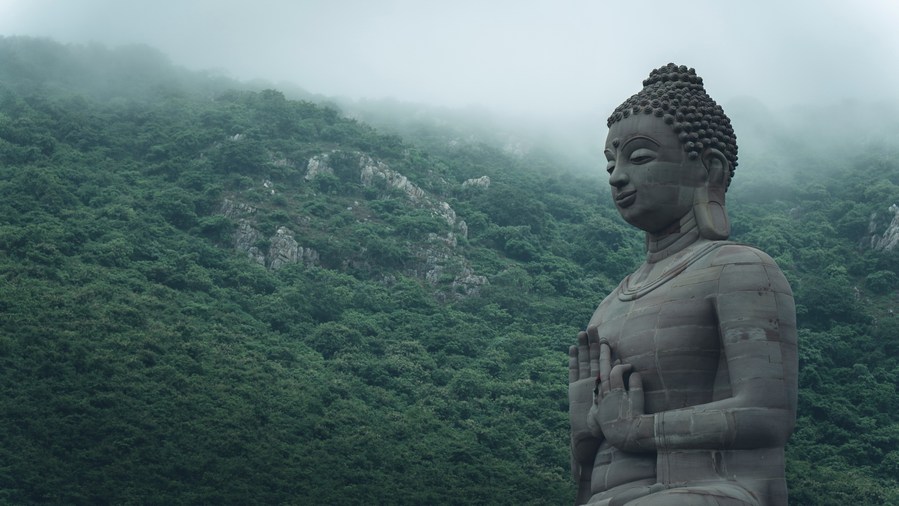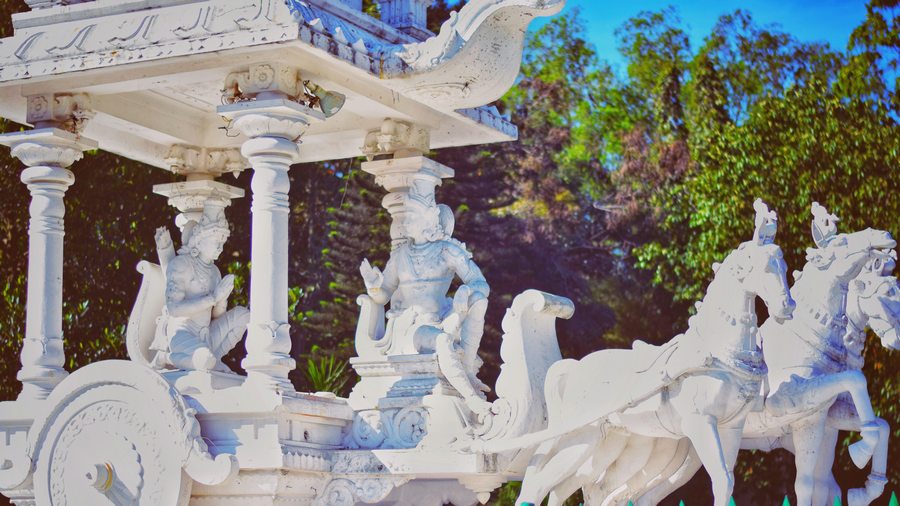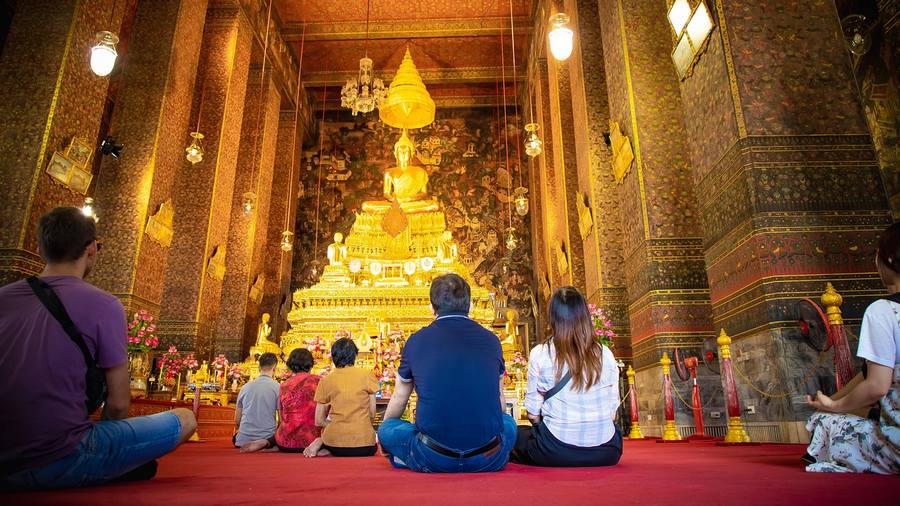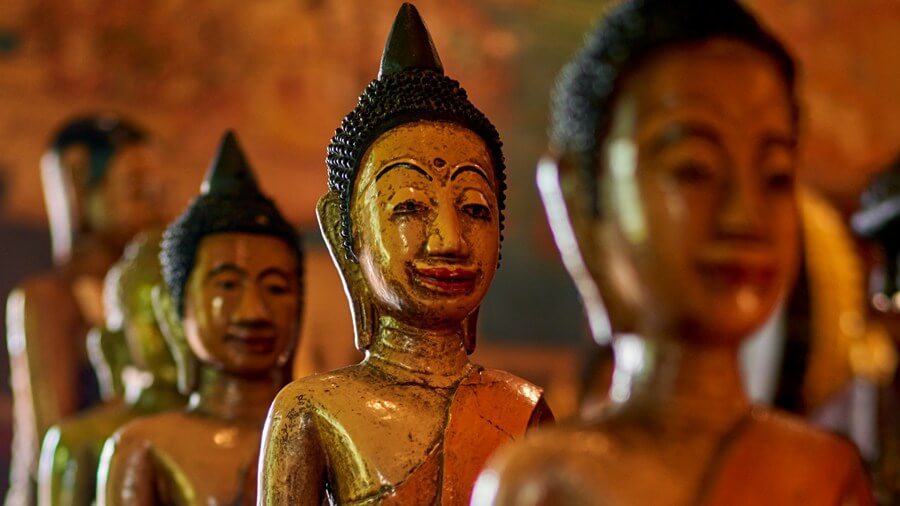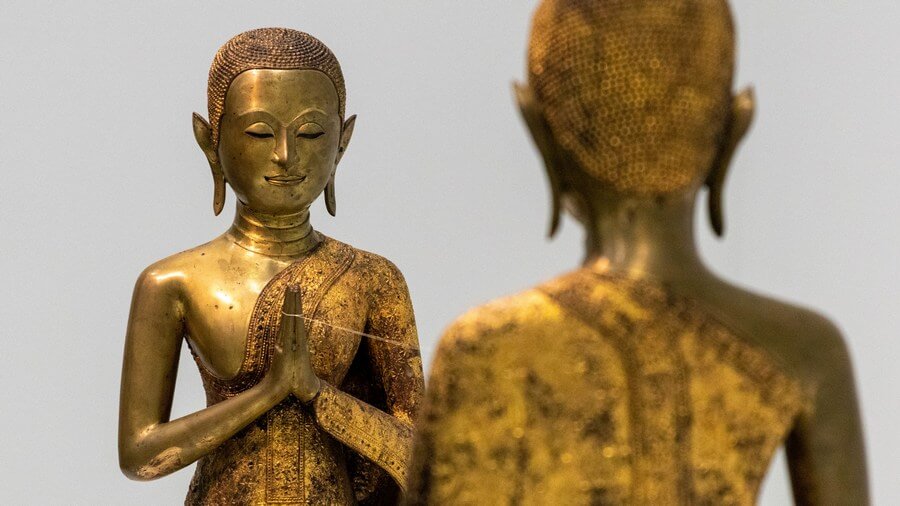[Note: Although this selection is on the long side, it is just the first part of a wonderful longer sutta. If you have time to read the whole thing it would be good. The rest of the sutta selections this week will be back to their normal length.]
So I have heard. At one time the Buddha was staying near Rājagaha, in the Bamboo Grove, the squirrels’ feeding ground.
Now at that time the novice Aciravata was staying in a wilderness hut. Then as Prince Jayasena was going for a walk he approached Aciravata, and exchanged greetings with him.
When the greetings and polite conversation were over, he sat down to one side and said to Aciravata, “Master Aggivessana, I have heard that a mendicant who meditates diligently, keenly, and resolutely can experience unification of mind.”
“That’s so true, Prince! That’s so true! A mendicant who meditates diligently, keenly, and resolutely can experience unification of mind.”
“Master Aggivessana, please teach me the Dhamma as you have learned and memorized it.”
“I’m not competent to do so, Prince. For if I were to teach you the Dhamma as I have learned and memorized it, you might not understand the meaning, which would be wearying and troublesome for me.”
“Master Aggivessana, please teach me the Dhamma as you have learned and memorized it. Hopefully I will understand the meaning of what you say.”
“Then I shall teach you. If you understand the meaning of what I say, that’s good. If not, then leave each to his own, and do not question me about it further.”
“Master Aggivessana, please teach me the Dhamma as you have learned and memorized it. If I understand the meaning of what you say, that’s good. If not, then I will leave each to his own, and not question you about it further.”
Then the novice Aciravata taught Prince Jayasena the Dhamma as he had learned and memorized it. When he had spoken, Jayasena said to him, “It is impossible, Master Aggivessana, it cannot happen that a mendicant who meditates diligently, keenly, and resolutely can experience unification of mind.” Having declared that this was impossible, Jayasena got up from his seat and left.
Not long after he had left, Aciravata went to the Buddha, bowed, sat down to one side, and informed the Buddha of all they had discussed.
When he had spoken, the Buddha said to him,
“How could it possibly be otherwise, Aggivessana? Prince Jayasena dwells in the midst of sensual pleasures, enjoying them, consumed by thoughts of them, burning with fever for them, and eagerly seeking more. It’s simply impossible for him to know or see or realize what can only be known, seen, and realized by renunciation.
Suppose there was a pair of elephants or horse or oxen in training who were well tamed and well trained. And there was a pair who were not tamed or trained. What do you think, Aggivessana? Wouldn’t the pair that was well tamed and well trained perform the tasks of the tamed and reach the level of the tamed?”
“Yes, sir.”
“But would the pair that was not tamed and trained perform the tasks of the tamed and reach the level of the tamed, just like the tamed pair?”
“No, sir.”
“In the same way, Prince Jayasena dwells in the midst of sensual pleasures, enjoying them, consumed by thoughts of them, burning with fever for them, and eagerly seeking more. It’s simply impossible for him to know or see or realize what can only be known, seen, and realized by renunciation.
Suppose there was a big mountain not far from a town or village. And two friends set out from that village or town, lending each other a hand up to the mountain. Once there, one friend would remain at the foot of the mountain, while the other would climb to the peak. Then the one standing at the foot would say to the one at the peak, ‘My friend, what do you see, standing there at the peak?’ They’d reply, ‘Standing at the peak, I see delightful parks, woods, meadows, and lotus ponds!’
But the other would say, ‘It’s impossible, it cannot happen that, standing at the peak, you can see delightful parks, woods, meadows, and lotus ponds.’ So their friend would come down from the peak, take their friend by the arm, and make them climb to the peak. After giving them a moment to catch their breath, they’d say, ‘My friend, what do you see, standing here at the peak?’ They’d reply, ‘Standing at the peak, I see delightful parks, woods, meadows, and lotus ponds!’
They’d say, ‘Just now I understood you to say: “It’s impossible, it cannot happen that, standing at the peak, you can see delightful parks, woods, meadows, and lotus ponds.” But now you say: “Standing at the peak, I see delightful parks, woods, meadows, and lotus ponds!”’ They’d say, ‘But my friend, it was because I was obstructed by this big mountain that I didn’t see what could be seen.’
But bigger than that is the mass of ignorance by which Prince Jayasena is veiled, shrouded, covered, and engulfed. Prince Jayasena dwells in the midst of sensual pleasures, enjoying them, consumed by thoughts of them, burning with fever for them, and eagerly seeking more. It’s quite impossible for him to know or see or realize what can only be known, seen, and realized by renunciation. It wouldn’t be surprising if, had these two similes occurred to you, Prince Jayasena would have gained confidence in you and shown his confidence.”…
Read the entire translation of Majjhima Nikāya 125 Dantabhūmisutta: The Level of the Tamed by Bhikkhu Sujato on SuttaCentral.net.
Or read a different translation on DhammaTalks.org or AccessToInsight.org. Or listen on PaliAudio.com or SC-Voice.net. Or explore the Pali on DigitalPaliReader.online.
Or read a translation in Bengali, Català, Deutsch, Español, हिन्दी, Indonesian, Italiano, မြန်မာဘာသာ, Norsk, Português, ру́сский язы́к, සිංහල, Srpski, ไทย, Tiếng Việt, or 汉语. Learn how to find your language.

 Copyright: Creative Commons Zero (CC0) To the extent possible under law, Bhikkhu Sujato has waived all copyright and related or neighboring rights to his own translations on
Copyright: Creative Commons Zero (CC0) To the extent possible under law, Bhikkhu Sujato has waived all copyright and related or neighboring rights to his own translations on 

